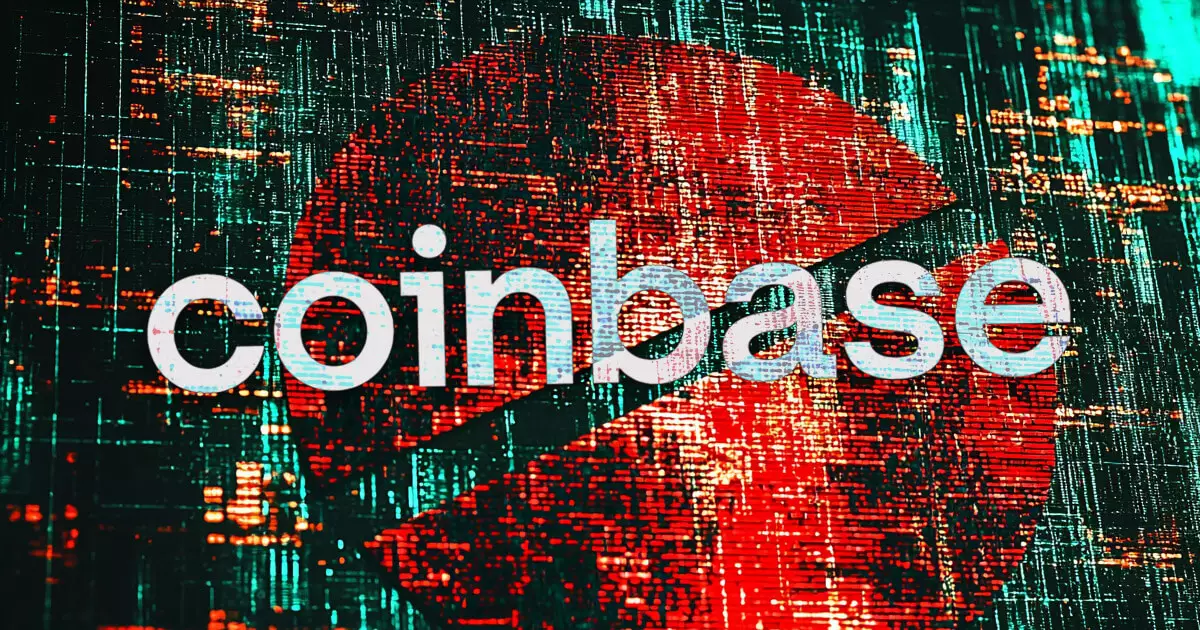The cryptocurrency exchange Coinbase, widely recognized as the largest in the United States, recently found itself embroiled in a significant controversy concerning its stance on the use of Virtual Private Networks (VPNs) by its users. A warning issued by Scott Shapiro, a product designer at Coinbase, on December 2, sparked widespread backlash from the crypto community. This backlash is rooted in fears that Coinbase’s risk management strategies could undermine not only user privacy but also financial autonomy in an increasingly digital world.
Virtual Private Networks are essential tools that allow users to navigate the internet with enhanced security and privacy. By encrypting internet connections and masking IP addresses, VPNs serve as a robust defense against unwarranted surveillance, particularly in regions with stringent censorship laws. In recent years, the adoption of VPN technology has surged, with reports indicating that almost half of American adults engage with VPN services. As more individuals turn to these tools to protect their online presence, the implications of Coinbase’s disapproval of such usage become clear—many feel their right to privacy is being violated.
In his statement, Shapiro outlined the company’s rationale for flagging VPN usage: it is typically associated with potentially malicious activities. However, this black-and-white approach has drawn criticism for not considering the context. Critics argue that while a percentage of fraudulent activities do occur through VPNs, this does not encapsulate the broader user base. For many cryptocurrency enthusiasts, employing a VPN is a matter of personal safety and privacy rather than a cover for illicit intentions. The dilemma presented is stark: users must now weigh their financial transactions against the risk of possible exposure to their local internet service providers and governments.
This decision by Coinbase has not gone unnoticed; reactions from the crypto community have been overwhelmingly negative. Users have taken to social media and forums to voice their dissatisfaction, drawing parallels to a trend in the US toward limiting access to financial services based on personal choices or circumstances. Kraken’s Chief Security Officer Nick Percoco encapsulated the sentiments of many when he argued that cryptocurrency users, who generally prioritize privacy and security, are now being forced to make a dangerous sacrifice between financial access and personal safety. The risk of exposing their identities, particularly in repressive regimes, elevates this issue from mere inconvenience to a serious concern.
The Hypocrisy Allegation
Critics have also pointed out a disturbing inconsistency in Coinbase’s policies. The company recently celebrated a legal victory regarding the privacy-enhancing tool Tornado Cash, yet now finds itself labeling VPN usage as a potential threat. Security experts, including Sudo, have noted this apparent hypocrisy, arguing that the ability to access financial services securely should not be at odds with the utilization of protective tools that keep users safe from many forms of exploitation—particularly when accessing platforms that are frequented by those valuing anonymity.
Counterarguments: A Case for Fraud Prevention
However, not all voices in the debate are against Coinbase’s policies. Crypto expert Evan Van Ness has defended the company’s anti-fraud approach, arguing that an overwhelming majority of VPN users are indeed fraudsters. He maintains that, while legitimate users may need to disable their VPNs for some transactions, it is a necessary compromise for maintaining a secure exchange environment. Van Ness emphasizes that while Coinbase’s practices may seem stringent, they are rooted in industry standards aimed at curbing prevalent fraud activities.
The controversy surrounding Coinbase’s stance on VPN usage reveals the complex interplay between user privacy and security protocols. As cryptocurrency continues to evolve, exchanges must find a balance that protects users from fraud while respecting their rights to privacy. Coinbase finds itself at a crossroads, tasked with navigating the concerns of its user base while promoting safer practices in an inherently risky digital landscape. The outcome of this debate could significantly shape the relationship between cryptocurrency exchanges and their users, urging platforms to innovate rather than isolate—a lesson that could resonate well beyond the crypto community.
















Leave a Reply